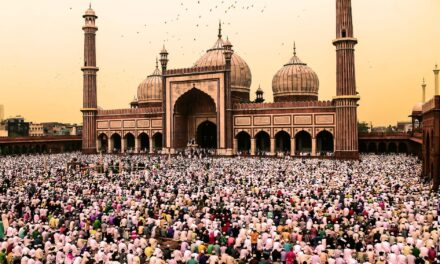Ashari Kalam theologians deny that God wills to create the world on account of causes or wise purposes. There is no reason why God created the world in time out of nothing when He did, and God does not need the world to be God. Mutazili Kalam theologians agree that God has no need for the world and that He created the world ex-nihilo. Nonetheless, the Mutazilis try to affirm a stronger sense of God’s goodness by introducing some kind of rationality into creation (Gharad). God created the world to benefit humankind, but God’s wise purpose in creation has no impact on Him.
Within Ibn Sina’s writings is found a view of God’s unchanging perfection not unlike that of the Kalam theologians. God is completely perfect as He is. He is pure perfection, pure good and pure actuality. God has no need, and there is no unrealised potentiality or possibility in God. God does not change because change would entail imperfection in God. However, Ibn Sina rejects the Kalam doctrine of creation ex nihilo and portrays the creation of the world as an emanation proceeding necessarily from its First Cause God. God is essentially productive, emanating the world as a necessary concomitant of His essence. The world is eternal because its Cause is eternal.
Ibn Sina also rejects the Mutazili claim that God creates the world for the good of creatures. God does not emanate the world out of concern for the world itself, nor does God act for causes or purposes external to Himself because that would entail change in God. Instead the emanation of the world follows necessarily from the very essence of God. Ibn Sina puts it this way: “The emanation of things from [the Creator] is because of His essence, not because of something external, and His essence is the cause of order and good.”
Thus the premise of “God willed to create the worlds to manifest His attributes” also loses significance as the creation becomes a logical and temporal accident.
Al-Ghazali takes Ibn Sina and his ilk to task for denying the agency and will of God despite their claims that God is the Artisan and Agent of the world. While Ibn Sina does speak of God willing and choosing to create the world, he does so only in a certain sense. The philosopher equates God’s will (Irada) with God’s knowledge or God’s providence and insists that God’s will is not subject to purpose in the Mutazili sense. Rather, God’s choice is conformity with His essence, giving notion of Logos, an adynamic God. To deal with this problem of adynamism later day Hanbalite theologians employed the term “hikma” to give moral significance to the created world in the face of the Ashari denial that God performs acts on account of causes, reasons or purposes. They still took it upon themselves to defend hikma against the same objections that the Asharites had levelled against the Mutazili understanding of “gharad” that it entails need in God, temporal origination in God, and an infinite regress. However, unlike Mutazilites, they had retorted that this was irrational that some pleasure does not return back to the wise originator. In fact Some measure of pleasure, reward or praise returns to the agent for the wise purpose in his act. But does this not imply a God who acts out of need?
Joseph Bell, a well known scholar of Hanbalite studies, argues that the the Hanbalite scholars solve this problem with God’s love of His wise purpose. They take refuge in the Neoplatonic notion of God’s self-love employed by medieval Sufis and that they often express this in idioms as God’s self-praise. God’s self-love and self-praise far outstrip His love for creatures and their love and praise of Him, and this renders Him completely sufficient apart from them. Bell again explains that their God is free of want and deficiency because “everything worthy of love in his creatures is God’s own work.” Bell then concludes that creation does not arise from need in God but from the “natural and logical” outworking of God’s attributes especially love—through God’s acts.
For both Ibn Sina and the Kalam theologians, timeless and unchanging eternity is what ultimately characterises the perfection of God. Hanbalite scholars break with this mainstay of the Greek and Islamic intellectual traditions and envision God’s essential perfection as ‘perpetual dynamism’. Purposive activity is of the very essence of God—God is indeed moved by purposes, but purposes that are His own—and God has been creating for wise purposes from eternity. At the level of creation itself, nothing created is eternal, but there have always been created things of one sort or another.







Recent Comments